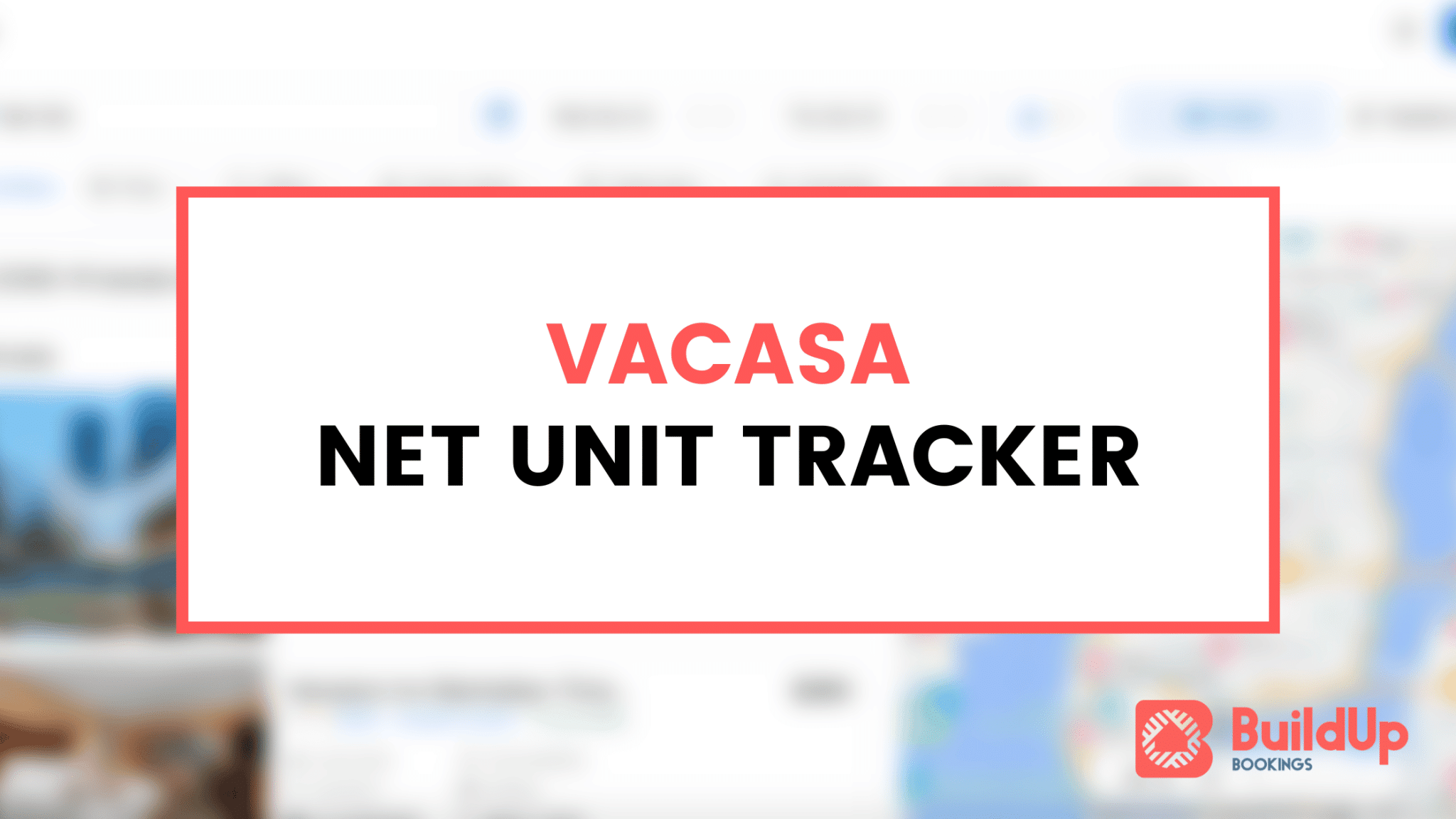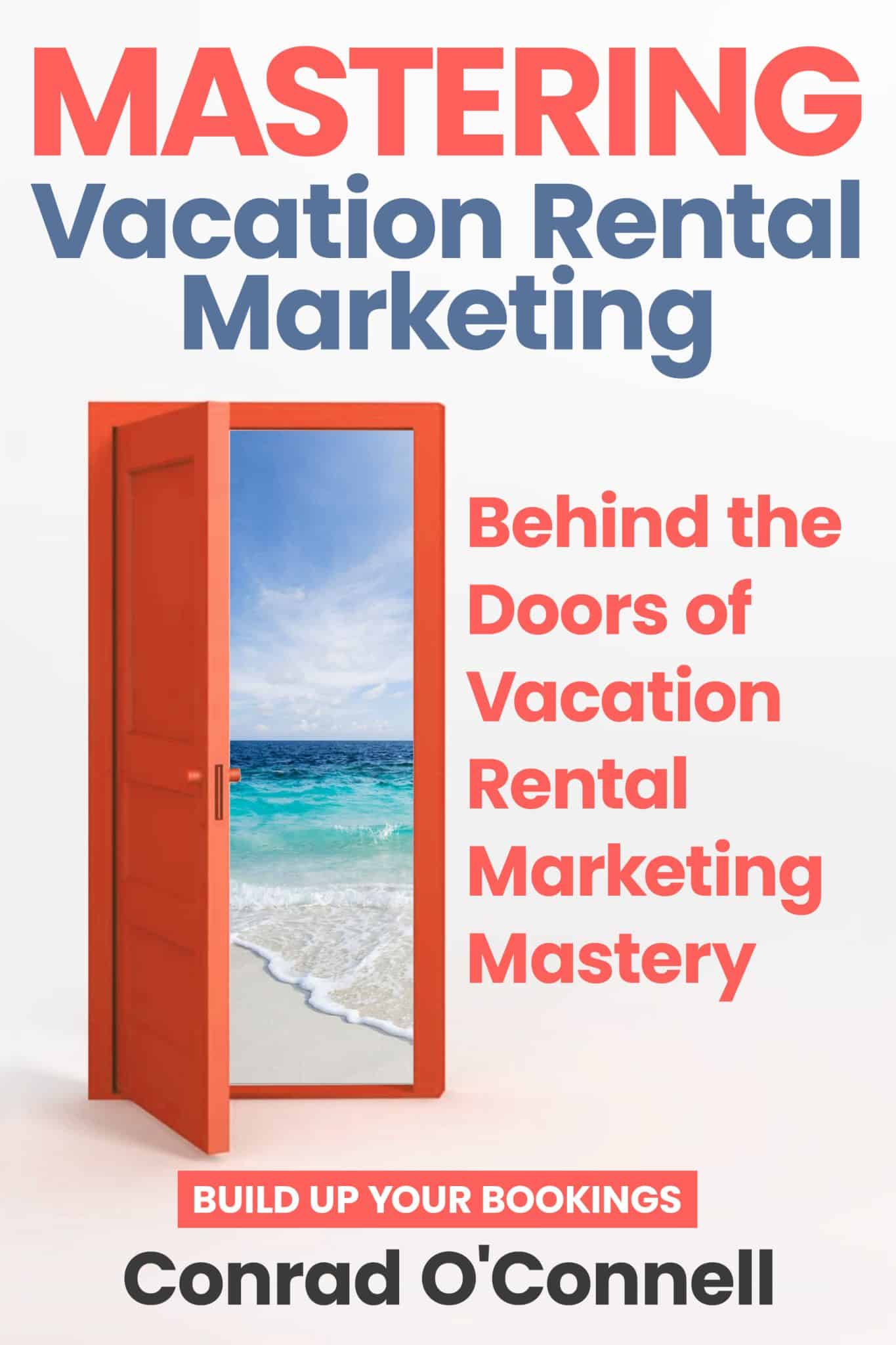
About once a month, I get an email from the contact page on this very website that has this rough outline:
- I’m upset that HomeAway/VRBO/Flipkey changed their rules.
- I wish things could go back to the way they used to be.
- Why isn’t there another listing site?
- Someone could make buckets of cash if they just made a new site just like the old VRBO.
Occasionally, the person contacting me is even considering becoming the person in step four above.
By nature, I am not a cynical person, but I do like to review marketing and business strategies with a careful eye. Ideas are extremely easy to come up with. An idea is virtually worthless — execution is the powerful ingredient.
I thought I’d share my thoughts on exactly what it would take to execute on how to make a very large and successful listing site for vacation rentals or similar short-term rentals. If you’ve wanted to create a vacation rental listing site alternative, buckle up and keep reading.
Acquire Lots Of Inventory

This, in my opinion, is the missed step in most failed listing sites currently in the marketplace: they have no inventory.
I live in the Myrtle Beach, South Carolina area. Myrtle Beach is often one of the top 3 destinations in the US for short-term rental vacations and attracts millions of visitors per year to stay in vacation rentals and other short-term accommodations (condos, hotels, resorts and homes).
The first thing I do when I see a new listing site alternative pop up is check the inventory in the Myrtle Beach market. Currently, VRBO is home to 7,969 different rentals along the Grand Strand (greater Myrtle Beach market).
It’s not uncommon that a site that intends to compete with VRBO has 10-20 rentals when I look at them.
I’ll make it as simple as I can: guests actually like to search through different rentals when looking for a vacation. Reviewing options, picking between oceanfront and second row, viewing fifty photos per listing is all part of the vacation planning process. If a guest can look through every piece of inventory you have in 15 minutes, the chances of conversion are actually lower than if you have 500 options. Guests want different things: pet friendly, 12 bedrooms, oceanfront, condos/homes/villas and so on.
Inventory is king in the world of listing sites: starting without lots of it is like a car without an engine. Therefore, a listing site that wants to succeed in 2017 and beyond needs to have lots of inventory.
Ramp Up Traffic With Google AdWords

After enough inventory has been acquired on the listing site that a launch is possible, we’re ready to move towards the supply side: website traffic. At first, any brand-new website isn’t going to get much traffic organically from the search engines. While over time this is a very viable marketing tactic, starting a brand-new website means you’ll have to start with traffic right away to help drive bookings towards the inventory that has been added to the site.
The quickest way to ramp up traffic from searchers looking for vacation rentals in any given area is through Google AdWords and Bing Ads.
Even today, large companies like VRBO and HomeAway still spend lots of money on paid traffic text ads to help boost their traffic and drive more bookings. Based on my research, even areas where the current large listing sites rank highly in organic search, they still invest money into paid traffic as well.
According to SpyFu.com data (which is an estimate using click-through-rate data and reviewing search impression data) HomeAway.com spends around $116,000 per month in Google AdWords advertising costs. VRBO also has their own dedicated budget for paid search which SpyFu estimates to be around $103,000. I also checked Airbnb’s Google AdWords spend and they rack up an (estimated) impressive $323,000 per month with Google.
These campaigns are very complex, comprising tens of thousands of landing pages, keyword bid match types and ad copy, a large investment is needed to drive traffic to a new listing site. It’s reasonable that a site competing with these in paid search would need a minimum of $50,000 per month to gain a large amount of traffic to each destination page.
In addition to the large investments needed that go straight to Google, you’ll also need a team to manage these campaigns, landing pages, match types and other account performance metrics. Large agencies dealing with spends in these ranges often ask for 15-20% of total ad spend to manage the performance of these accounts. It’s likely that another $10,000 per month will need to be budgeted to allow for management of the Google AdWords and Bing Ads accounts.
Gain Enough SEO Authority To Level Out Ad Spend

Budgeting $60,000 per month in search ad spend means that ramping up an organic (SEO) marketing strategy is key! According to SimilarWeb, while both VRBO and HomeAway invest money in paid search, the majority of their search traffic comes from organic rankings and clicks. VRBO is estimated to have upwards of 80% of their search traffic from organic (non-paid clicks) from Google.
While it’s hard to compress a SEO strategy into just a few sentences, one metric that we can review and compare is the number of links pointing to a large site like HomeAway.com. In Google’s ranking algorithm, links are like “votes” for a website to rank higher in the search results. It’s very to easy to see that listing sites that do well in organic search have lots of links pointing towards them and ones that don’t rank well do not have nearly as many links.
Using Ahrefs data for backlink counts, I checked the number of links pointing to Flipkey, HomeAway and VRBO as of early September of 2016.
VRBO — 3.9 million backlinks from 33,500 different domains.
Flipkey — 1.3 million backlinks from 12,500 different domains.
HomeAway — 16.9 million backlinks from 25,400 different domains.
To compete with these listing sites in organic search, a new listing site will need to quickly ramp up PR efforts and content marketing efforts to help attract tens of thousands of mentions (and links) on the web. Reaching these lofty goals will take some serious talent. It’s reasonable to expect to hire around 3-5 team members to focus just on organic search traffic. The median salary for a SEO Analyst is $83,651/year according to PayScale.com. A monthly payroll budget for a small but effective marketing team could be around $25,000 to $50,000 depending on the salary of each team member.
World-Class Engineers & Product Teams

While marketing is great (I love it!), complex websites dealing with payment systems, dynamic pages and large databases require web engineers with talent and experience. I am no expert in building large-scale web applications, but even a small nimble team will need around 3-5 people to help create a listing site in a reasonable timeframe. The average salary for a senior Ruby On Rails engineer is $116,442 while junior-level programmers are $77,306 according to PayScale.com. Therefore, budgeting around $30,000 – $40,000 per month for payroll for an engineering and web development team should help create the back-end infrastructure and front-end interfaces for both owners and managers to interact with a new listing site.
To make a great website for both guests and owners, it could take a few months of building a framework, application settings, API and other technical pieces. In addition to the costs of hiring a team to build a listing site, hardware is also needed to host the databases, files, staging server and live website. Website hosting for a large website can exceed $500 per month depending on the provider used.
Convince Guests To Move Backwards?

Here’s the hardest part of tackling a project of this scale and being effective: guests have moved their expectations forward. Listing sites like VRBO offer insurance covering any misrepresented rentals, promised refunds of security deposits and more. Any new listing site will have to gain trust through similar protections, which are not free.
Another major motivation that owners aim towards of returning to the “old VRBO” is the love of moving away from instant bookings. Many owners and property managers prefer to speak to the guests and perform a “gut screen” of each renter to see if they’re a good fit.
I’ve got news: guests don’t want that. If short-term rentals are going to take a chunk from hotel revenue, the booking experience needs to mimic that of a high-end hotel chain, not a cheap motel.
Perhaps the largest hurdle that any listing site may face as it seems (some) owners want it to exist is this fact: you can’t stop progress. Guests want to be able to book instantly without fear of cancellations or follow-up calls from a nervous host. Building a listing site requires that you make all properties online-bookable from the start without exception. Anything less isn’t progress.
Thoughts On Creating A Listing Site Alternative
Reading through this may have you thinking I am firmly against the idea of a new listing site to take create serious competition with the current market stranglehold that HomeAway has.
This is 100% false.
However, creating such a business isn’t cheap, easy or without the need for innovative minds working behind the scenes. Any serious competitor to HomeAway will probably come from another large travel company expanding into the vacation rental or short-term rental market.
The alternative today could also be a VC (venture capital) funded startup that aims to compete with HomeAway.com and VRBO.com for market share. This is a plausible scenario has any new travel site should be given a reasonable timeframe to see success and (hopefully) consistent profits.
However, personally, I do not feel that a large listing site will come from either a bootstrapped company nor a VC-funded startup.
Why?
Bootstrapping a listing site, as we discovered during my research, isn’t cheap. Not many companies have the $3-5M startup costs to invest in creating a new segment in a (fairly) crowded market.
Any listing site funded by VC will likely also face the fate of Dwellable, VacationRentals.com and dozens of others: any success is met with a large check from Expedia. Any VC-backed listing site with investors will likely exit in the face of a large offer from Expedia, TripAdvisor or Priceline, leading us back to square one by upsetting loyal owners and manager by merging policies with that of a large listing site.
As a result, I believe that a successful listing site could come from other profitable companies in the travel space already like HotelTonight or a similar company. As another alternative, the rise of location-specific websites and niche listing sites could provide more competition for the main listing sites.
Predictions are difficult and the vacation rental market has a great way of rewarding companies that make a splash by earning loyal guests that want to come back again and again. If you’re a vacation rental manager or host, focusing on that will always lead to excellent results.
What are your thoughts? Do you see a new listing site gaining market share in 2017 and beyond? If so, where will it come from? I’d love to hear from you in the comments below.







